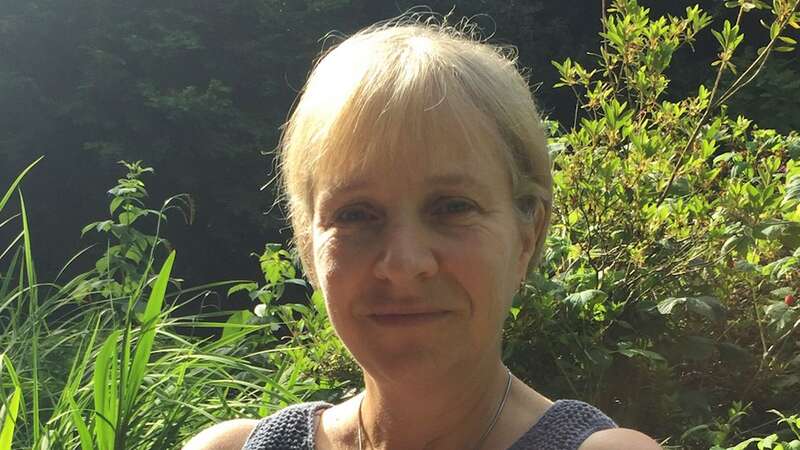
The all-clear on a mammogram should bring reassurance, but when Susan Michaelis was told there were no abnormalities on the X-ray images, she still felt uneasy.
A few weeks before the invitation for a routine NHS mammogram Susan, a pilot-turned-aviation-safety-consultant, had noticed something on her left breast. It was a tiny spot and a small area of thickening under the skin. Susan, 60, said: “It wasn’t a lump, it was more like a blemish, about a millimetre across.” Her doctor checked it and said there was nothing to worry about, but added that she should come straight back if anything changed.
The mammogram only left Susan, from Horsham in West Sussex, with a nagging doubt – and over the next couple of months the blemish slowly grew until it was two millimetres across and had become a little red. So she went back to the surgery and a biopsy was arranged for the following day. Three days later she got a call to say the doctor wanted to see her. “I went in and was told, ‘you have invasive lobular breast cancer’,” Susan recalls. “I replied, ‘lobular what?’”
 Susan and Tristan have launched the Lobular Moon Shot Project to increase awareness (Getty Images)
Susan and Tristan have launched the Lobular Moon Shot Project to increase awareness (Getty Images)Lobular cancer starts in tiny glands, called lobules, which produce breast milk – and when it becomes invasive and spreads it tends to grow in single-file strands of cells rather than forming a lump. Susan says: “Because of my flying background I went into problem-solving mode. I was in shock, but I thought, ‘OK, what do we do about this, what is the process?’ I didn’t have the time to collapse in a heap, although I have had my moments since.”
There were so many questions. What treatment would she need? What were her chances of survival? – and why hadn’t it been picked up on her mammogram? Susan says: “The doctor explained that lobular breast cancer doesn’t usually show up on mammograms because, as he put it, it’s like a spider’s web. It slithers through tissue and doesn’t generally form a lump.”
 Hospitals run out of oxygen and mortuaries full amid NHS chaos
Hospitals run out of oxygen and mortuaries full amid NHS chaos
As a result it is often not diagnosed until it is very advanced. “That’s the scary thing,” says Susan. “Women tend to think of a lump when they are looking for breast cancer, but lobular cancer creeps through the tissues. Sometimes the shape of the breast changes or something just doesn’t feel right.”
And although it behaves very differently from ductal breast cancer – the most common type, accounting for 80 per cent of cases – there is no specific treatment for the 15 per cent of women, and handful of men, who are diagnosed with the lobular form. There is also a tendency to include both types of breast cancer in studies and clinical trials. That is something Susan, and her husband Tristan, a former pilot who is now a film-maker, are determined to change. The couple have launched the Lobular Moon Shot Project to increase awareness of this form of breast cancer and raise funding for research to find specific treatments to combat it.
“Tristan and I have always been in aviation and love space,” she explains. “In 1962, John Kennedy said, ‘We choose to go to the moon and do the other things, not because they are easy, but because they are hard’ and they got there because they threw resources at it. That’s what we need with lobular breast cancer.
“We don’t have a specific treatment. It doesn’t usually show up on mammograms and generally we’re diagnosed at a later stage – this has to change. To get people better outcomes we need specific treatments, and that will only come from specific research into lobular.”
After Susan’s diagnosis in 2013, an MRI scan – which can pick up this elusive cancer – suggested there was a 2.5 centimetre network of cancerous cells in her left breast and localised cells in the other. She had a double mastectomy, which revealed the established cancer was actually seven centimetres across. Susan chose not to have chemotherapy on the advice of her oncologist, who told her drugs effective against ductal cancers often have less impact on lobular cancer. Instead, she had radiotherapy then tamoxifen, a hormonal therapy which works against this form of the disease. But her consultant also warned her it was likely her cancer would return – and in 2016 another spot appeared on her breast.
Despite having a double mastectomy, the cancer was back and she needed three ops to try to remove every last cancer cell. She was also put on a hormonal therapy called an aromatase inhibitor. That kept it in check until 2021, when it returned again.
“When Covid hit, we took up walking and hit country footpaths. We’d been out for a walk and my hip was sore, so I went to the doctor.”
He sent her for an X-ray which showed holes in her bone which suggested the cancer had spread. Her private medical insurance meant Susan had been able to monitor the disease through regular blood tests for tumour markers, and the most recent results showed these were also rising. A whole body MRI scan confirmed cancer was in her pelvis and spine. More recently it has spread into her skin. Susan is under no illusions. “This will kill me,” she says, acknowledging the search for better treatment is now a race against time.
She was taking a new targeted therapy that homes in on CDK enzymes which help cancer cells proliferate, but past experience taught her the cancer would find a way around it.
“I’ve always known the limitations with lobular, but it’s only when it went to my bones that I really realised there is no specific treatment, it’s a one size fits all approach,” she says. “And that doesn’t seem OK to me.”
 Mystic Mag's 2023 predictions include strikes, sleaze, self pity and separation
Mystic Mag's 2023 predictions include strikes, sleaze, self pity and separation
After two further changes of treatment, Susan has run out of hormonal therapies and is now on oral chemotherapy to slow progression and buy her more time. But there is hope. The Lobular Moon Shot Project is helping fund work at the Institute of Cancer Research which identified a link between lobular cancer and the loss of a protein called E-cadherin that helps cells stick together. This should improve diagnosis and it provides a potential target for new therapies. Susan is confident scientists can find solutions to combat lobular breast cancer if they get the funding they need – an estimated £20million.
“We need to use an effective drug that’s already available, or develop a new drug and then do the trials, and fast track all that work.
And Susan, who has always aimed high, is determined the Moon Shot Project will help scientists make this giant leap in cancer care. She says: “We can change this, but we have to do the work, we have to make this happen.”
For more information, to donate to the Lobular Moon Shot Project or to see a film Tristan made about Susan go to lobularmoonshot.org